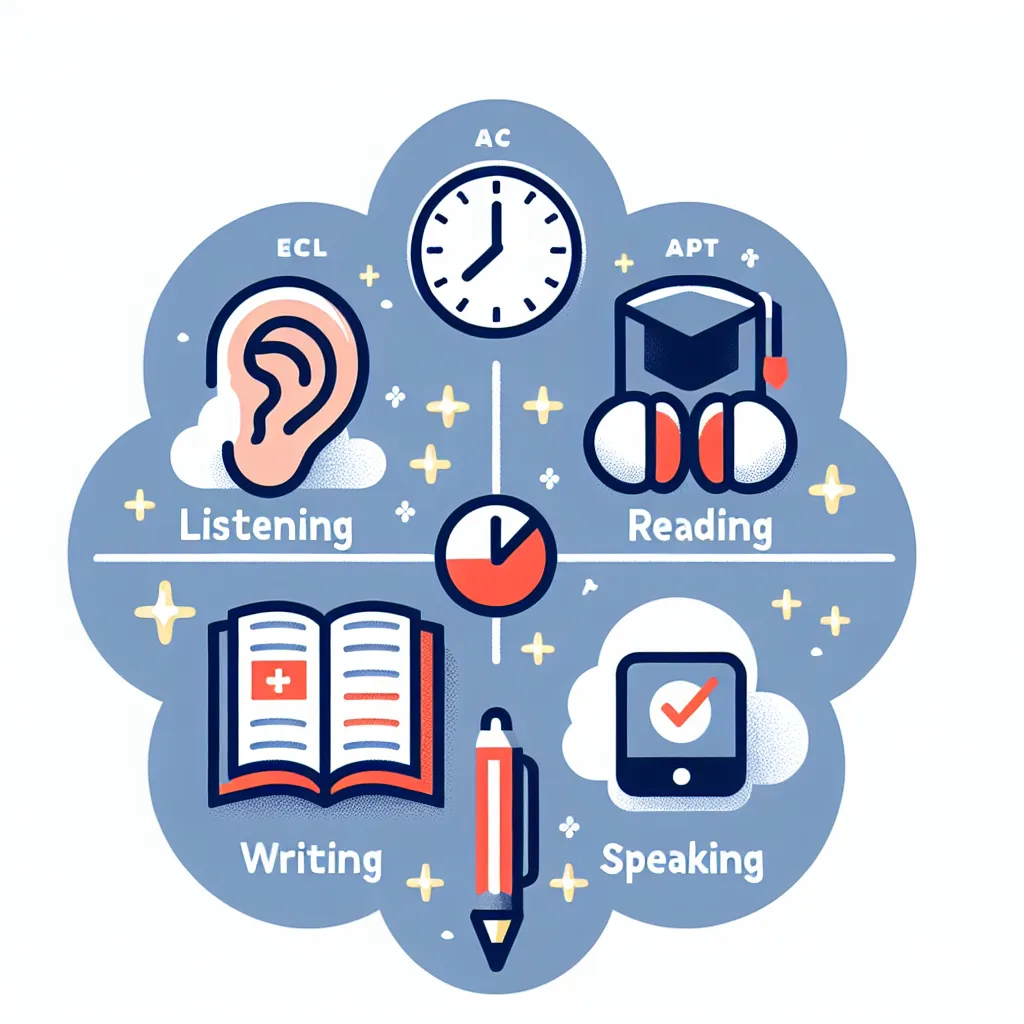The IELTS (International English Language Testing System) exam is a crucial step for many individuals seeking to study, work, or migrate to English-speaking countries. One of the most common questions that arise when preparing for this test is, “What is the duration of the IELTS test?” In this comprehensive guide, we’ll explore the length of the IELTS exam, break down the time allotted for each section, and provide valuable insights to help you manage your time effectively during the test.
Understanding the IELTS Test Format
Before diving into the specifics of test duration, it’s essential to understand that there are two versions of the IELTS test: Academic and General Training. Both versions have the same format and duration for three of the four test components: Listening, Reading, and Writing. The Speaking test is the same for both versions but may be conducted on a different day.

Total Duration of the IELTS Test
The total duration of the IELTS test is approximately 2 hours and 45 minutes. This time is divided among the four test components: Listening, Reading, Writing, and Speaking. Let’s break down the time allocated for each section:
Listening Test (30 minutes)
The Listening test is the same for both Academic and General Training versions and lasts for 30 minutes. This section consists of four recordings and 40 questions. After the recordings end, you’ll have an additional 10 minutes to transfer your answers to the answer sheet.
Reading Test (60 minutes)
The Reading test duration is 60 minutes for both Academic and General Training versions. However, the content differs:
- Academic: Three long texts with a total of 40 questions
- General Training: Three sections of increasing difficulty with a total of 40 questions
Writing Test (60 minutes)
The Writing test also lasts for 60 minutes in both versions but with different tasks:
- Academic: Two tasks (describing visual information and writing an essay)
- General Training: Two tasks (writing a letter and an essay)
Speaking Test (11-14 minutes)
The Speaking test is conducted separately from the other components and typically lasts between 11 to 14 minutes. It consists of three parts: an introduction, an individual long turn, and a two-way discussion.
Time Management Tips for the IELTS Test
Given the fixed duration of the IELTS test, effective time management is crucial for success. Here are some tips to help you make the most of your test time:
- Practice with timed mock tests to familiarize yourself with the pace of each section.
- Read instructions carefully but quickly to avoid wasting precious minutes.
- In the Reading and Listening sections, skim questions before the test begins to know what information to look for.
- For the Writing test, allocate your time wisely between the two tasks, typically spending 20 minutes on Task 1 and 40 minutes on Task 2.
- In the Speaking test, aim to provide concise but detailed answers within the given time frame.
Common Questions About IELTS Test Duration
Q: Is there a break between test sections?
A: There are no scheduled breaks between the Listening, Reading, and Writing sections. These three components are completed in one sitting. The Speaking test is conducted separately, often on a different day.
Q: Can I move on to the next section if I finish early?
A: No, you must wait until the allotted time for each section has passed before moving on. Use any extra time to review your answers.
Q: What happens if I don’t finish a section in time?
A: It’s crucial to complete all questions within the given time. Unanswered questions will be marked as incorrect, so make educated guesses if you’re running out of time.
Q: How long do I have to wait for my test results?
A: IELTS results are typically available 13 calendar days after the test date for paper-based tests and 5-7 days for computer-delivered tests.
Preparing for the IELTS Test Duration
To ensure you’re well-prepared for the duration of the IELTS test, consider the following steps:
- Take full-length practice tests under timed conditions to build stamina and improve time management.
- Focus on improving your reading speed and comprehension to maximize efficiency in the Reading section.
- Practice typing (for computer-delivered tests) or writing by hand to increase your writing speed for the Writing section.
- Work on your listening skills with timed exercises to keep pace with the Listening test.
- Prepare concise, well-structured responses for the Speaking test to make the most of the limited time available.
Conclusion
Understanding the duration of the IELTS test is crucial for effective preparation and performance on exam day. By familiarizing yourself with the time constraints of each section and practicing time management strategies, you can approach the test with confidence and maximize your chances of achieving your desired score.
Remember, the key to success in the IELTS test lies not just in your language skills but also in your ability to demonstrate those skills efficiently within the given time frame. Keep practicing, stay focused, and good luck with your IELTS journey!